Table of Contents
If you have been injured in a motorcycle accident in Fort Lauderdale or another part of Florida, the negligent driver who caused your motorcycle accident is responsible for any losses you have experienced, including pain and suffering, medical expenses, lost wages, diminished future earning potential, emotional distress, and/or the pain of losing a loved one.
At Kogan & DiSalvo, our Fort Lauderdale motorcycle accident attorney will work to secure a settlement to compensate you for your losses by means of an out-of-court settlement or as the result of a positive verdict in a jury trial. To begin your road to financial recovery, consult with a Fort Lauderdale personal injury attorney today.

For many Florida residents and visitors, riding a motorcycle is a popular means of transportation, whether for recreation or commuting. Florida is also a popular destination for a multitude of motorcycle enthusiast events – including rallies, poker runs, charity rides and the annual Daytona Bike Week. With more than 573,000 registered motorcyclists in the state of Florida, and numerous out-of-state motorcyclists who visit throughout the year, Florida motorcycle accident statistics are staggering and sobering. In 2011, 18.8% of all motor vehicle deaths involved the driver and/or passenger of a motorcycle, and nationwide, 5,000 people are killed annually in motorcycle accidents. 53% of motorcyclists killed in crashes were not wearing safety helmets.

Victims of motorcycle crashes are more susceptible to serious injuries because, unlike other motor vehicles, they have no protective exterior or airbag to soften the blows caused by impact with another vehicle, the road itself or any other obstructions. Motorcyclists can be killed or incur life-altering injuries, among those being:
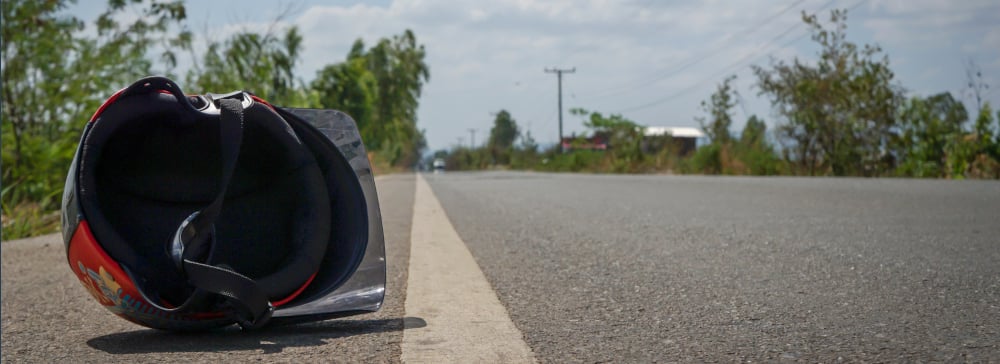
Motorcyclists are at higher risk of being involved in a traffic accident because it can be more difficult for the drivers of other vehicles to see a motorcycle approaching, weaving through traffic, and changing lanes. Drivers in Florida are required by law to adhere to safe driving practices in general, and specifically with regard to motorcyclists with whom they share the road. Slight distractions, a moment of negligence or even a bad decision made by the driver of a motor vehicle can have devastating consequences for the driver and/or passenger of a motorcycle.
The following are common causes of motorcycle accidents:

Another vehicle is not always involved in a motorcycle accident. Single-vehicle collisions can result from a defective part or repair which could be the responsibility of the motorcycle manufacturer or a shop that failed to fix or identify a larger problem that could arise later. Roadway obstructions or unsafe conditions caused by failure to repair potholes or inadequate signage are often the fault of the local or state government entity. These scenarios could also be the basis for filing a lawsuit against a negligent third party, which Kogan & DiSalvo’s motorcycle lawyers are prepared to allege under the right set of facts.

If you experience a motorcycle crash, seek medical attention as soon as possible at a hospital emergency room or urgent care facility, even if you don’t believe you have been injured. Injuries sometimes don’t become evident for a day or even a week after the accident. Failing to get examined by a doctor soon after an accident may hurt your chances of receiving fair compensation later. Insurance providers can always argue that your delays in seeking medical treatment caused your injuries to worsen over time, and is, therefore, unrelated to the accident.
If your injuries allow, you could take a few minutes to collect evidence regarding the accident, including the names, addresses, and phone numbers of the driver that hit you, passengers in his vehicle, and any eyewitnesses. It’s also a good idea to take pictures of the accident scene that show the location of each vehicle, wreckage and physical injuries that you incurred, as well as nearby signage and road obstructions. These will all be important pieces of evidence that your motorcycle accident lawyer can use in your favor later. If you aren’t well enough to file the police report yourself, be sure to do so as soon as you are able. You will also be able to access the reports of others involved in the accident.

The number of motorcyclists injured in crashes nationwide rose 2 percent to an estimated 84,000 in 2019 from 82,000 the year before, according to revised data released in 2021 by the National Highway Traffic Safety Administration (NHTSA). Motorcycle accident fatalities, however, declined slightly to 5014, or 14 percent of all traffic deaths, in 2019 from 5,038 fatalities in 2014.
In Florida alone, there were 8,631 motorcycle crashes in 2021, resulting in 588 fatalities, according to FLHSMV’s Crash Dashboard.
Motorcycles account for only 3 percent of the registered motor vehicles and less than 1 percent of the vehicle miles traveled (VMT) on Florida roadways. Between 2016 and 2021, only about 2 percent of all traffic collisions in Florida involved a motorcycle. Yet in spite of such low figures, motorcycles continue to be involved in a disproportionate number of fatal crashes, with motorcycle fatalities representing nearly 17 percent of all deaths resulting from traffic crashes in Florida during the most recent five-year period, according to Ride Smart Florida, the communication division of the Florida Motorcycle Safety Coalition.

Adherence to state safety laws for motorcycles can lower your risk for injury if you are involved in a crash. Section 316.211 of the Florida Statutes outlines some basic safety requirements that motorcyclists must follow:
In addition, motorcyclists are required to complete an approved motorcycle safety course in order to obtain a motorcycle endorsement on their driver license or a Motorcycle Only license, according to FLHSMV. Other rules require motorcycles and mopeds to be registered annually and to have proper tags and prohibits motorcycles and mopeds from being operated on bicycle paths or foot paths.
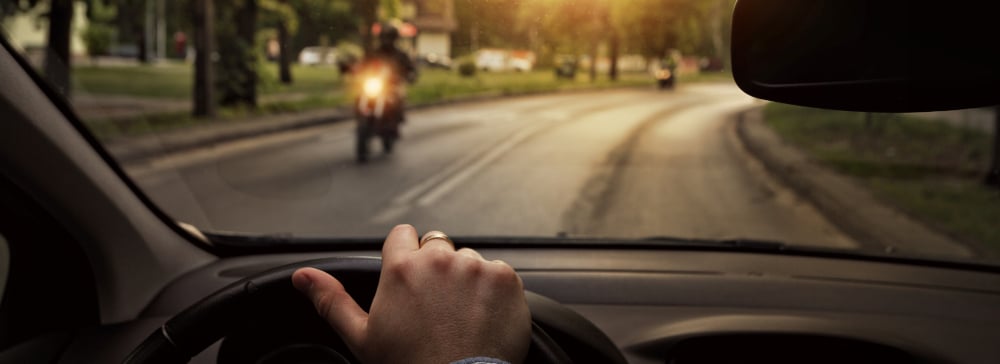
An estimated 37 percent of motorcycle rider fatalities are prevented simply by wearing a helmet, according to the National Highway Traffic Administration. Your helmet needs to have a valid DOT label to meet Federal Motor Vehicle Safety Standards. Antilock braking systems have also been shown to reduce fatalities by an estimated 30 percent. Other smart safety tips include:

When trying to recover damages for an accident, motorcyclists often find themselves at a disadvantage. There is a common belief that the motorcyclist caused the accident, which they and their lawyers need to disprove to be awarded damages in court. Unfortunately, there is data that supports this belief, indicating that motorcycle drivers who get into fatal collisions are more likely to be impaired from alcohol than drivers of other kinds of motor vehicles. In 2019, 29 percent of motorcyclist deaths were linked to alcohol consumption, compared with 20 percent of fatalities for drivers of passenger cars and 19 percent of those for light truck drivers, according to revised statistics released by the NHTSA in 2021. In addition, motorcyclists killed in traffic crashes at night were nearly three times more frequently alcohol-impaired than those killed during in day-time accidents in 2019.
Assigning liability for a traffic accident can be complicated. There are times when the motorcyclist did not violate any laws and the fault for the collision rests completely with the other party, who perhaps was distracted for a moment while responding to a text message on his phone or made a turn without checking to see if the coast was clear. But in other cases, a motorcyclist may be partially at fault, whether for violating the speed limit, following too closely behind another vehicle or driving under the influence of drugs or alcohol.
In cases where both drivers bear some responsibility for the accident, Florida’s modified comparative negligence rule will be used to determine damages for the plaintiff. Under this rule, you are still able to file a claim and obtain compensation as long as you are 50% or less at fault for the collision. If you are over 50% at fault, you will be denied all recovery. If you bear 50% or less fault in the accident, the amount of damages you recover will be reduced proportionate to the degree of fault it is determined you bear. For example, if a court concludes you were 30 percent at fault and your damages are $100,000, you will be able to collect only $70,000. Among the kinds of negligent actions that can result in your being found partially at fault for a crash are speeding, veering in and out of lanes, and failure to use proper signals.
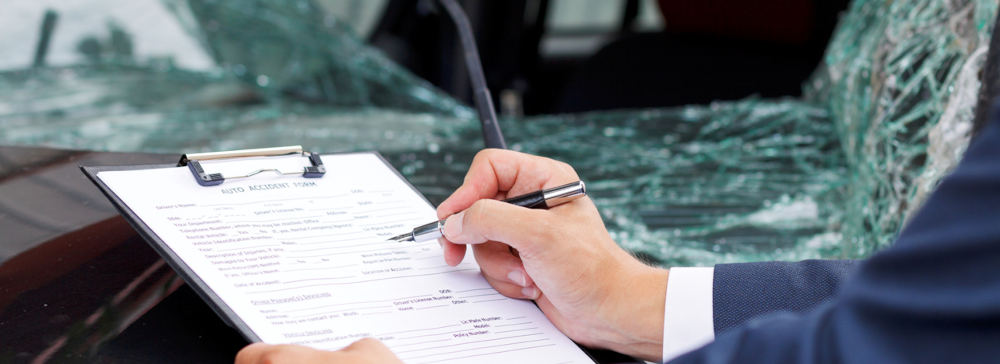
Motorcycle collisions are known to cause severe injuries, including some that can incapacitate the victim. Among these are amputation of limbs, traumatic brain injuries, spinal cord injuries, scars and disfigurement and broken bones. Damages you can claim fall into three major categories:
When you have lost a loved one in a motorcycle crash due to another driver’s negligence, Wrongful Death Statutes provide for other damages to be claimed, including compensation for the loss of love and partnership, grief, the loss of personal services and funeral and burial costs.
Being informed about the kinds of damages that can be recovered from a motorcycle collision put you in a better position to know what to ask for when filing a claim with the defendant’s insurance provider and will make it easier to assess whether the settlement you are offered is fair or not.

In the state of Florida, the $10,000 (for medical treatment and/or loss of work) Personal Injury Protection (PIP) benefits are NOT available to those who have been injured as a driver or passenger on a motorcycle. No-fault insurance does not apply to motorcyclists because motorcycles are seen as inherently more dangerous than other kinds of motor vehicles.
Not wearing a helmet when you ride a motorcycle is not against the law in Florida for riders who are 21 years of age and older as long as they are covered by an insurance policy that provides for at least $10,000 in medical benefits for injuries sustained in a motorcycle crash. However, not wearing protective headgear can affect the amount of compensation you will be awarded for your injuries if you win your claim. If you were not wearing a helmet and suffered head injuries, the other driver who you are suing for damages is likely to argue that your injuries would have been less severe if you were wearing a helmet and demand that you share some of the liability for the accident. Courts in Florida have upheld this argument in the past.
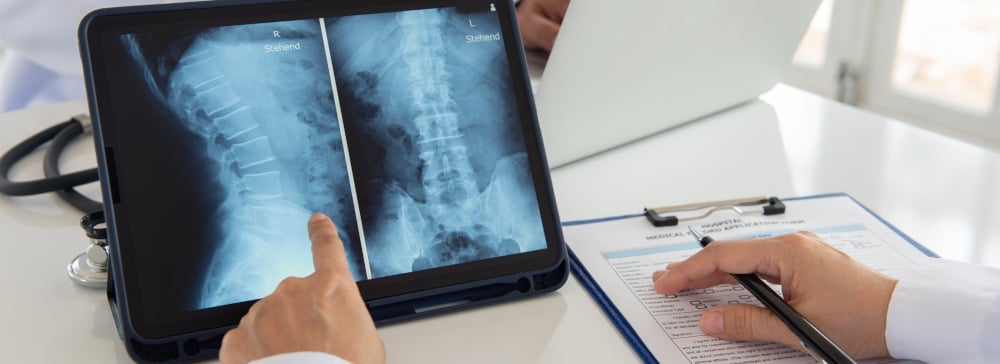
Because motorcyclists can be thrown from their bikes in a crash and land on a hard surface, a spinal cord injury is possible and is one of the more severe kinds of harm that can result from a collision. The spinal cord connects the brain to all other parts of the body. Any injury to the spinal cord can cause partial or full paralysis. The severity of these injuries depends on which part of the spinal cord was affected and whether the impact completely or partially severed it.
Across the U.S., motorcycle accidents were the cause of nearly 7 percent of all spinal cord injuries, according to 2021 data collected by the National Spinal Cord Statistical Center at the University of Alabama at Birmingham. In recent years, research studies have found that helmet use during an accident reduces the likelihood of cervical spinal injuries, which affect the head and neck area above the shoulders and are regarded as the most severe category of spinal cord injuries. These findings counter claims that helmets do not protect the cervical spine during a motorcycle collision and may even increase the risk of injury.
Research published in the Journal of Neurotrauma in 2014 found no evidence to suggest an increased risk of cervical spine injury or increased severity of cervical spine injury with helmet use for 135 cervical spine injury patients at a University of Florida level 1 trauma center between 2005 and 2010. The researchers behind this study even went as far as to suggest that unproven concerns about helmet use being linked to increased risk of cervical spine injuries had played a part in Florida repealing its universal helmet law for motorcyclists over the age of 21 in 2000.
The personal injury lawyers at Kogan & DiSalvo have experience fighting on behalf of spinal cord injury patients who have been involved in motor vehicle crashes.
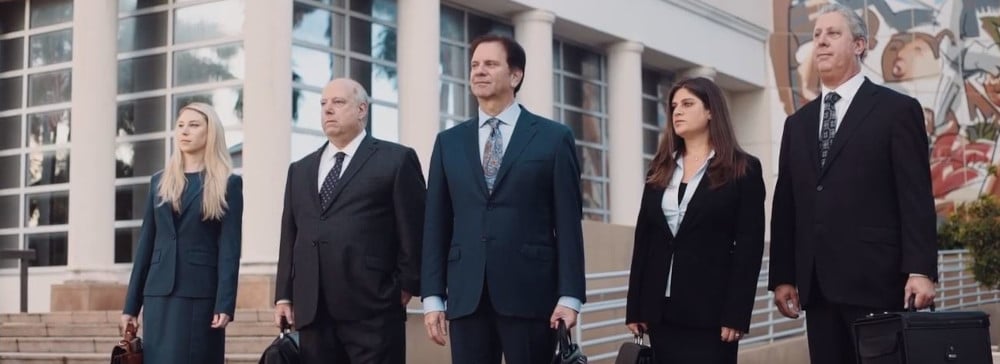
In the unfortunate circumstance that you are injured in a Fort Lauderdale motorcycle crash due to the recklessness or negligence of another driver, call the Fort Lauderdale motorcycle accident attorneys at Kogan & DiSalvo today. They can make a claim against the at-fault driver who caused your motorcycle accident, and help you recover a resettlement for your injuries, lost wages, emotional distress, or wrongful death of a loved one. Our Fort Lauderdale motorcycle accident attorneys have over 20 years of experience successfully recovering compensation for injured motorcyclists and their passengers. Contact us today for a free consultation.
If you are injured and unable to come to us,
our attorney will come to you - there is no charge for us to do so.